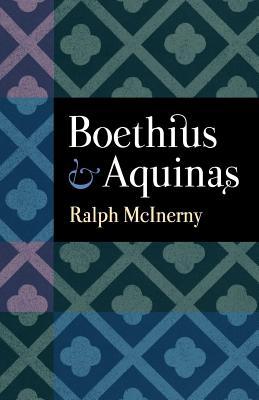In this study of the relationship between Boethius and Thomas Aquinas, Ralph McInerny dispels the notion that Aquinas misunderstood the early philosopher and argues instead that he learned from Boethius, assimilated his ideas, and proved to be a reliable interpreter of his thought. McInerny makes his point that "Boethius taught what Thomas
says he taught" through a careful analysis of Aquinas's commentary on the De trinitate and De hebdomadibus of Boethius.
ABOUT THE AUTHOR:
RALPh McineRny was Michael P. Grace Professor of Medieval Studies in the department of philosophy at the University of Notre Dame. He cofounded Crisis magazine and was author of several books published by CUA Press, namely, the bestselling Ethica Thomistica, The Question of Christian Ethics, Aquinas on Human Action, and Praeambula Fidei.
PRAISE FOR THE ORIGINAL EDITION:
"McInerny's point is that it is Boethius who has been misunderstood, and not by Thomas. The case is well argued. . . . One must praise the method of the study: the arguments come from the texts of Boethius and Thomas, not the other way around, and the Latin is there to consult. . . . McInerny's study builds to a strong and interesting conclusion."--Journal of the History of Philosophy
"Some of the leading historians of medieval philosophy have tended either to neglect Boethius's influence or to condemn his 'logicism' as an unfortunate element in the development of philosophy in the thirteenth and fourteenth centuries. McInerny aims at correcting this bias. . . . This book is an important contribution to the history of medieval
philosophy."--Speculum
